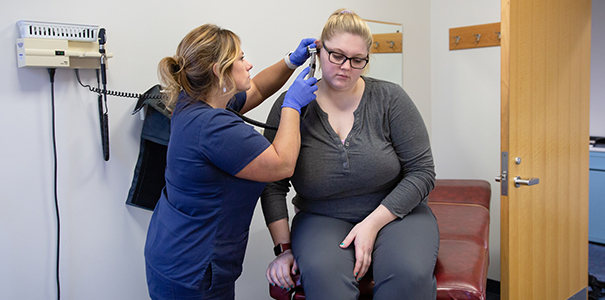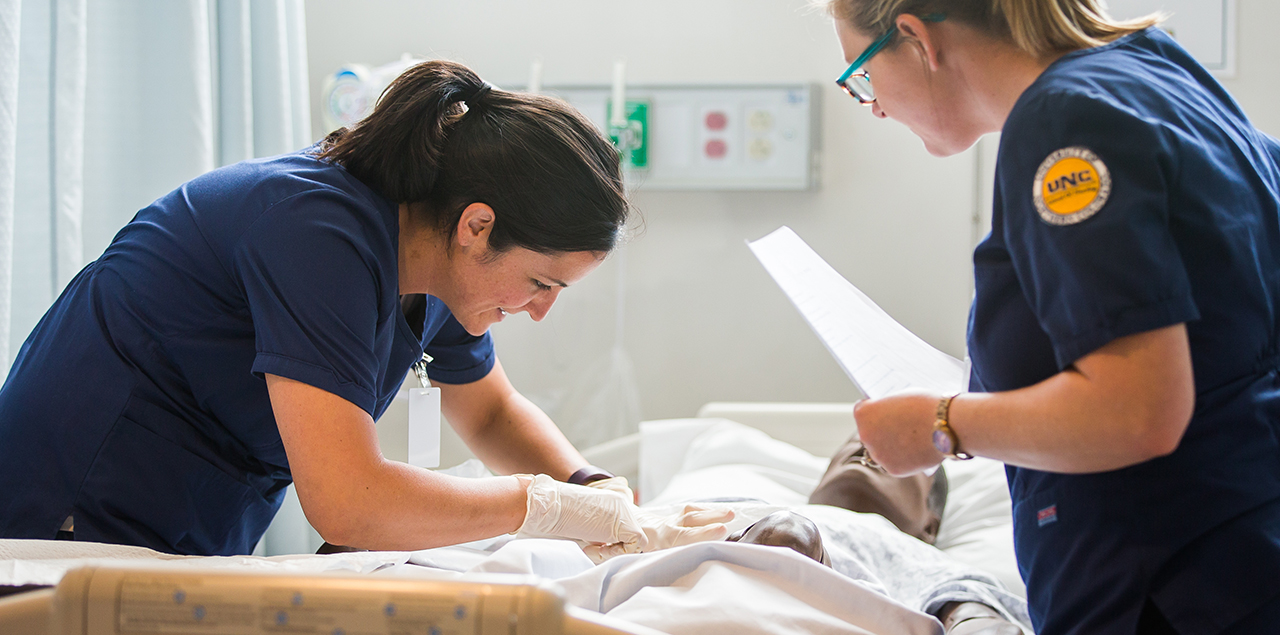
The University of Northern Colorado has only 12 confirmed cases of influenza among students at the Student Health Center on campus, around a 93% drop in cases compared to the 2009-10 academic year.
This is due in part to accessibility; influenza vaccines are free for students, faculty and staff. A decade ago, UNC didn’t provide free flu vaccines to students and positive influenza cases on campus were much higher.
According to Cindy Vetter, director of Student Health at UNC, “When we started providing free flu vaccine supported by our campus administration, you can see how the trend of positive cases dropped dramatically. This is credited to efforts by our immunization coordinator, Deb Miller.”
Interact with the graph below:
The vaccine is available on campus including residence halls, Butler-Hancock, the annual Student Health Fair in October, Student Health Center and other locations convenient to members of the campus community.
According to the Centers for Disease Control (CDC), flu timing is unpredictable and varies from season to season. Typically, influenza viruses will begin to circulate in early October and will usually peak in January or later.

Cindy Vetter
“We try to be very proactive and encourage students to get their flu vaccine,” Vetter said. “If we start seeing cases of any disease that’s congregated in certain locations on campus, then we immediately notify the Office of Environmental Health and Safety and custodial teams.”
Vetter said they’re seeing more strep and upper-respiratory issues right now than influenza cases. There were also a number of cases of mono in a specific residence hall that resulted in an email being sent to students earlier this year; this incident has diminished.
The CDC recommends the following to avoid getting sick:
- Get your flu vaccine yearly.
- Wash your hands with soap and water for 20 seconds after touching surfaces like doorknobs and handrails that may be contaminated.
- Cough into your sleeve and not your hands, and avoid touching your eyes, nose and mouth.
- Avoid close contact with people who are ill.
- Stay home when you’re sick to prevent spreading your illness.
- Keep your immune system strong by eating healthy foods, keeping active and getting a good night’s sleep.
—Written by Katie Corder
More Stories
-
Biological Sciences Master's Student Research Could Lead to Improvements in Liver Disease Outcomes
Este artículo no está en español.
-
Student’s Research Aims to Shed Light on Invisible Barriers
Este artículo no está en español.
-
Nursing Program Rises in U.S. News Rankings
Este artículo no está en español.
-
Novel and Interdisciplinary Research on Transgender Health
Este artículo no está en español.





